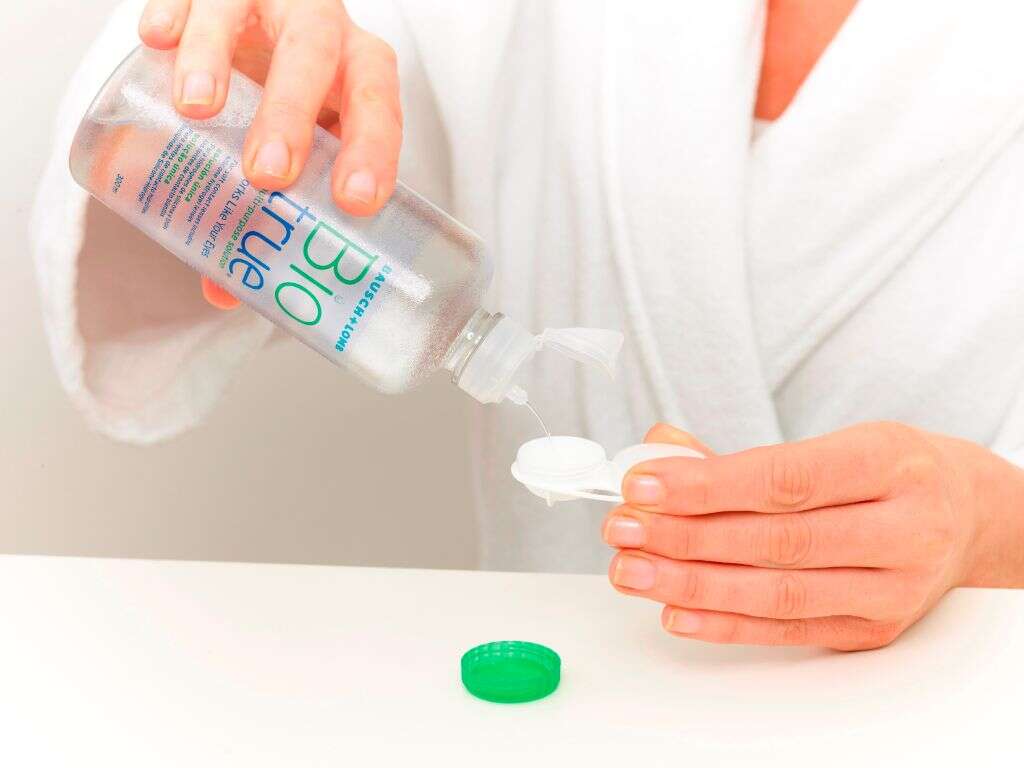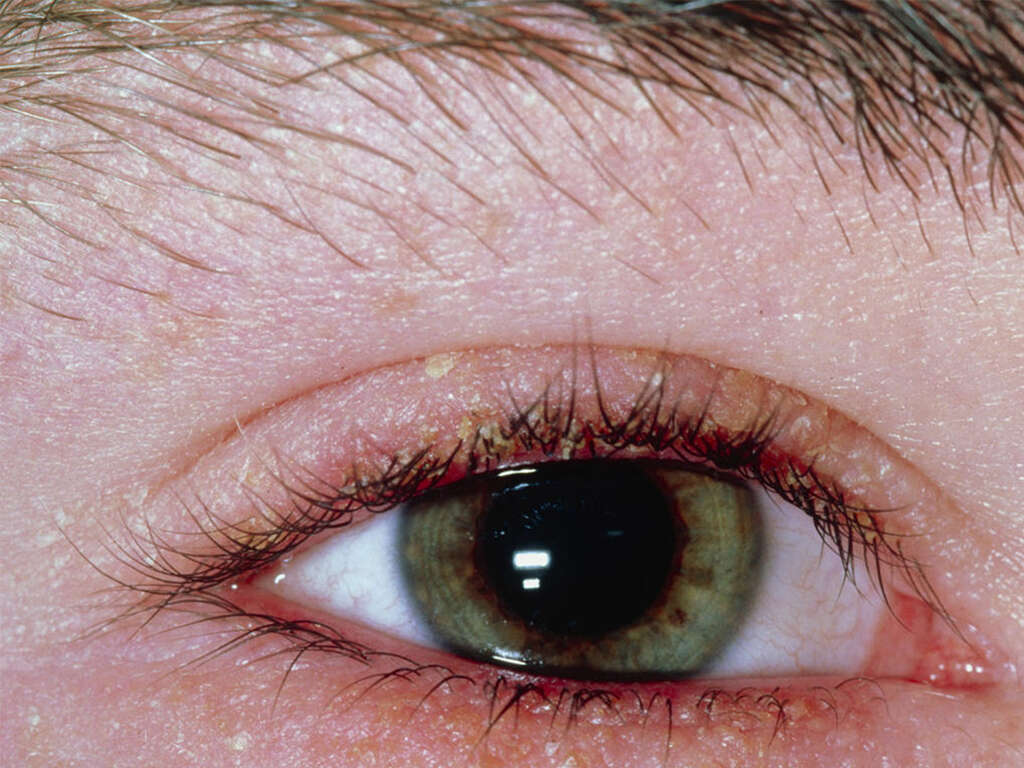What Is Blepharitis?
Do you have itchy, burning, or swollen eyelids? It might be painful to put in contact lenses, and your eyes might be more sensitive to light than usual. You may have a condition called blepharitis, which is the medical term for “eyelid swelling.”
Blepharitis can be complicated to diagnose because it can have many different causes. It is best to make an appointment with a medical professional who can treat and prescribe treatment for your blepharitis as soon as possible, but until then, read on to discover common symptoms, causes, and treatments for the condition.

1. What Is Blepharitis?
If you have blepharitis, your eyes will likely begin to feel irritated, itchy, or even painful. It can be caused by a number of conditions: allergies; irritation from substances such as lotions, makeup, or eye cream; or even medical conditions like seborrhea.
Blepharitis a common, albeit annoying condition, but you will need to get a diagnosis from a medical doctor, a nurse practitioner, or an ophthalmologist to get medication to treat and hopefully cure the symptoms. You might not need medication, but this depends on your type of blepharitis.
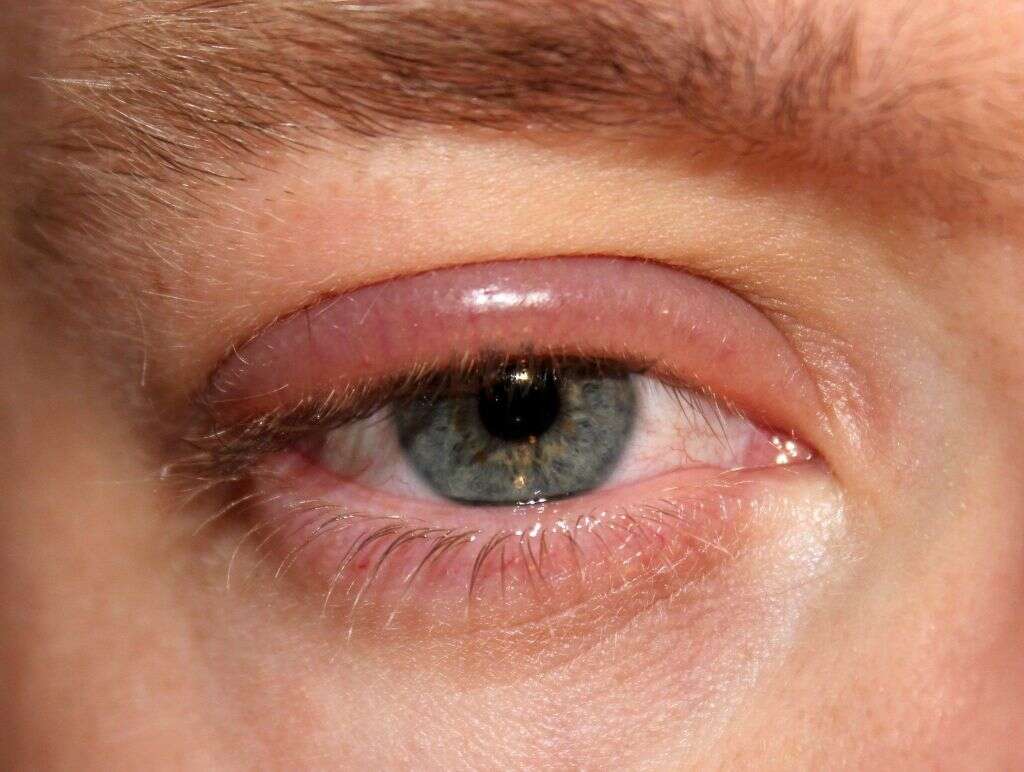
2. How Is Blepharitis Diagnosed?
There are two types of blepharitis: anterior and posterior. Anterior means “front,” so this type of eyelid inflammation will appear on the front of the eyelid. If you have posterior blepharitis, you will notice redness and irritation along the inner side of your eyelid.
A medical practitioner will go over your medical history to determine the cause of your inflammation. Make sure to list any allergies to rule out this cause before moving onto others. Sometimes you might know exactly what caused your blepharitis. If you think the culprit is your new contact lenses, for example, you will want to get in touch with the eye doctor who prescribed them.

3. Allergic Blepharitis
With the changing seasons comes pollen in the spring, grass pollen in the summer, and ragweed pollen and mold in the fall. If you have seasonal allergies, itchy eyes are common, but the good news is that eyelid inflammation is not as common for most people.
Unfortunately, if you suffer from severe environmental or food allergies, blepharitis is a possible result. Other causes of allergic blepharitis include reactions to makeup or skin products. To treat it, avoid your allergy triggers if you know them and take your prescribed medications, such as antihistamine eye drops.
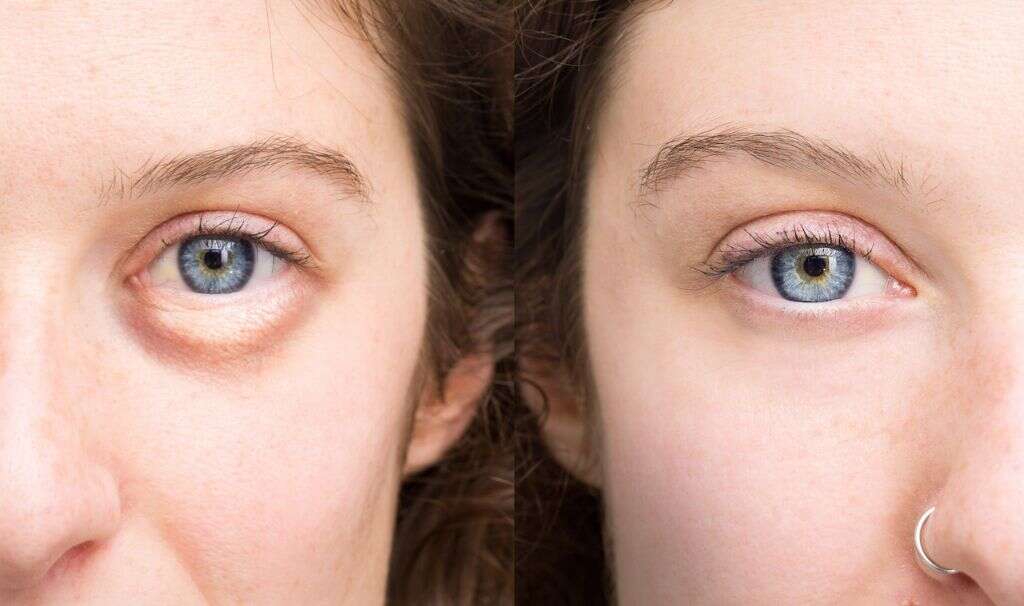
4. Staphylococcal Blepharitis
This type of blepharitis is caused by infection by the staphylococcal, or “staph,” bacteria, and it generally presents with anterior eyelid inflammation with sticky, thickened eyelids. Staph bacteria are responsible for other conditions like food poisoning and even respiratory conditions like pneumonia, and they normally live in the human body without causing a problem.
Dry eyes can lead to staph blepharitis, due to the fact that our tears lubricate our eyes and are made up of much more than just water, such as antibiotic agents that keep our eyes free of infection. If your doctor diagnoses you with this type of eyelid inflammation, you might need to take antibiotics to treat the infection and relieve your eyelid pain with warm compresses.

5. Ulcerative Blepharitis
This type of eyelid inflammation can be one of the most severe: sore, inflamed eyelids can develop a crusty surface, which leads to matting, sores, and even bleeding. The cornea of your eyeball can even develop swelling if it is not treated in time.
Ulcerative blepharitis is usually bacterial, but it can also be viral. Treatments include antibiotics or antivirals, eye drops, or artificial tears.
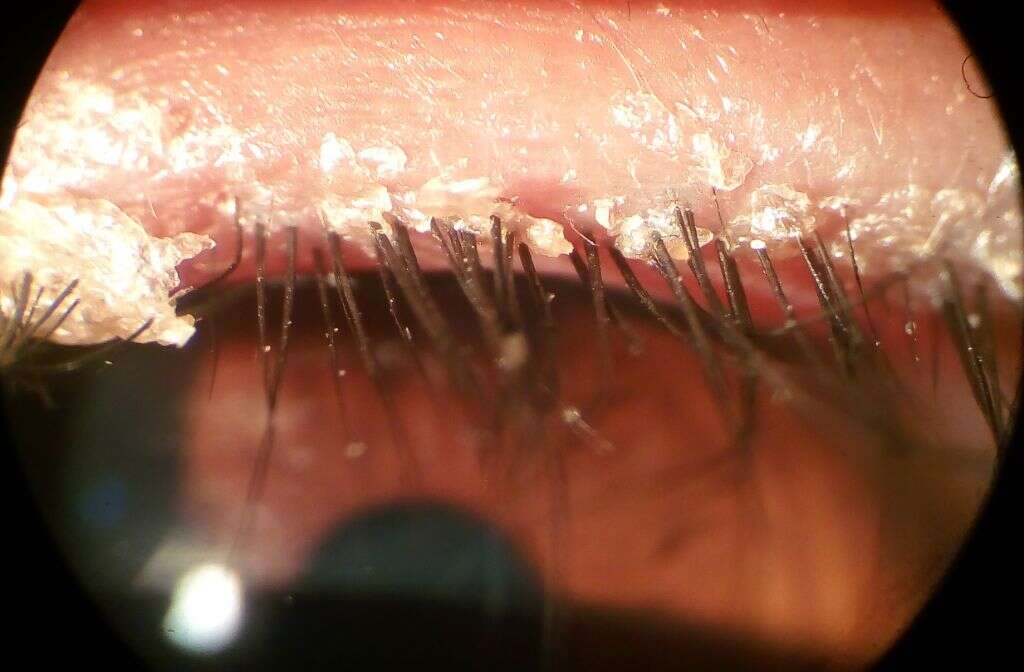
6. Meibomian Blepharitis
Though the name sounds like an alien from Star Wars, blepharitis of the meibomian type is probably not as gruesome as the otherworldly creature you’re picturing. This type of eyelid irritation, named for the meibomian gland, is simply caused by the oil glands in the eyelids being blocked, which results in tears that don’t lubricate your eyes well enough.
This type of inflammation can lead to a vicious cycle in which the eyes are too dry, they become irritated and swollen, and they do not produce high-quality tears to help the irritation. Eye care for this type includes warm compresses and washing eyes with pre-approved cleansers.
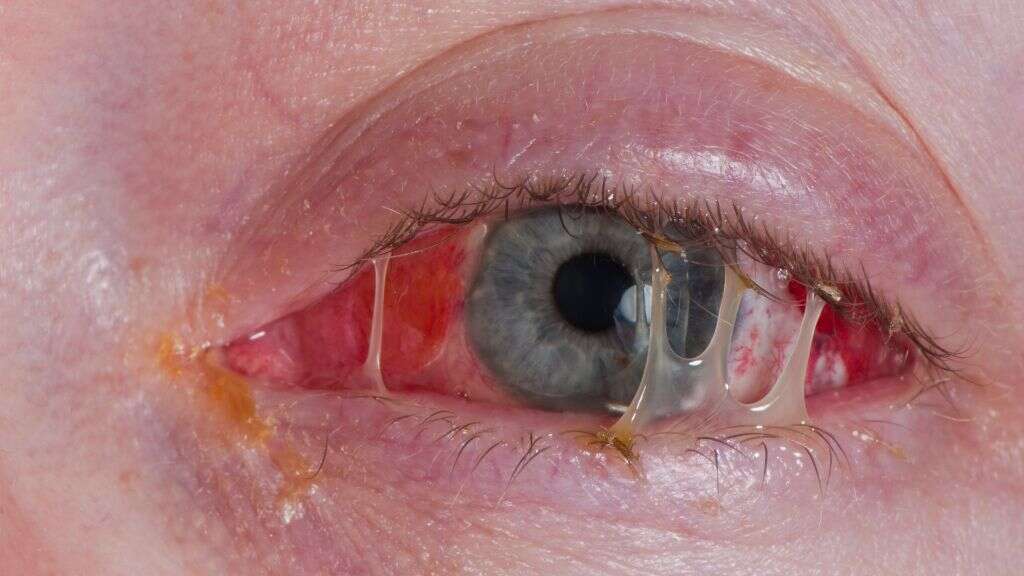
7. Are There Herbal Remedies I Can Try?
When it comes to the eyes, herbal remedies are perhaps better left unused. However, if you are set on trying something to ease your inflammation, you could try taking supplements that reduce inflammation rather than applying a substance directly to your eyes.
Fish oil, turmeric, and ginger have been studied for the anti-inflammatory properties, and they are available over the counter. If you have chronic blepharitis, you might ask your doctor if these remedies would help decrease your flare-ups in the long term.

8. When Should I Call My Doctor?
If your blepharitis is not relieved by home treatment, such as warm compresses and over-the-counter eye drops, make sure to contact your doctor to see if your condition needs further evaluation. If you feel that a home remedy is making your eyelids feel worse, discontinue it.
If you have blepharitis with a fever, or if your condition suddenly gets much worse, be sure to either to go to urgent care or call your doctor right away. Eye problems are not to be taken lightly; untreated blepharitis, especially if caused by a highly infectious bacteria, can lead to serious complications, and, at the very least, can sometimes be spread to others.

9. Is Blepharitis Related to Other Health Conditions?
Interestingly, yes. Those who suffer from blepharitis might have a co-occurring condition called seborrhea, a harmless yet annoying condition that causes dandruff-like flakes on the face, eyelids, and scalp. The flakes can be brushed off, but the condition can become chronic.
It’s common for blepharitis to be caused by allergies, but these allergies are generally to products put near eyes, like cosmetics, rather than pollen or mold. Dry eye sufferers and diabetics are more likely to get blepharitis than the general population as well.

10. How to Prevent Future Blepharitis
You’ve suffered through one round of blepharitis, and you’ve had it successfully treated, either with antibiotics, allergy medicines, or home remedies and you don’t want to have to do it again. How can you protect your eyes?
First, you will want to follow your doctor’s directions carefully when it comes to treating your blepharitis. If it’s caused by an allergic reaction, don’t use that product again! Even a little bit might lead to another bout of eyelid inflammation, and you might have a worse reaction the second time. Always wash your hands before touching your eyes, such as when placing or removing contacts.
